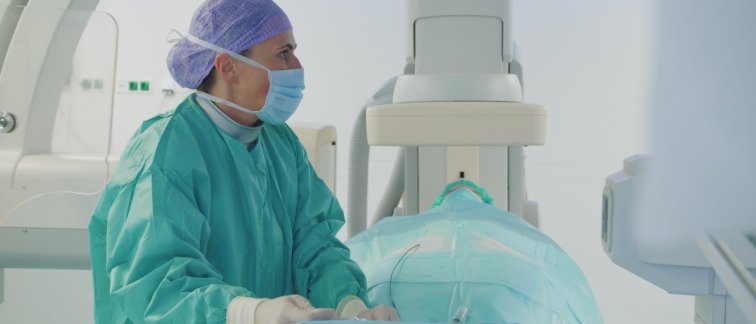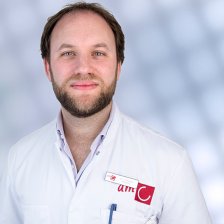About
The research program on Neurovascular Disorders is embedded in Amsterdam Neuroscience. Its researchers come from the departments of neurology, neurosurgery, radiology, and biomedical engineering of Amsterdam UMC. We strive to answer burning clinical questions, both through clinical studies and translational research. While our program encompasses the full range of stroke subtypes, the main conditions we focus on are acute ischemic stroke, subarachnoid hemorrhage and cerebral venous thrombosis.
Research
Acute ischemic stroke
Improving acute diagnosis and treatment of ischemic stroke is the mainstay of our research on ischemic stroke. On the one hand, we strive to improve pre-hospital stroke triage, allowing patients to have faster access to reperfusion therapy. On the other hand, we continuously research refinements in reperfusion therapy – both intravenous thrombolysis and endovascular thrombectomy – to reduce the proportion of patients who have a poor clinical outcome despite successful recanalization.
Cerebral venous thrombosis
Cerebral venous thrombosis is a rare cause stroke that mostly affects young adults and children. Because of its rarity, meaningful research on this condition can only be achieved through international collaboration. This is why – back in 2015 – our research group took the initiative to establish the International CVT Consortium, which is the largest research collaboration on cerebral venous thrombosis worldwide, with researchers from over 20 countries.
Projects
MR CLEAN NO-IV trial
A randomized trial which evaluated the added benefit of intravenous alteplase prior to intra-arterial thrombectomy in stroke patients with an intracranial occlusion of the anterior circulation. The results of this study were published in the New England Journal of Medicine in 2021.
ELECTRA-STROKE / AI-STROKE
The aim of these studies to explore the diagnostic accuracy of electroencephalography for large-vessel occlusion stroke in the ambulance. The results of ELECTRA STROKE are expected to be presented at ISC 2022.
DOAC-CVT
DOAC-CVT is an investigator-initiated, international, phase IV registry study in which the efficacy and safety of direct oral anticoagulants for the treatment of cerebral venous thrombosis is evaluated. Recruitment is ongoing and results are expected in 2024
VITT
Adenoviral COVID-19 vaccines in rare cases cause cerebral venous thrombosis due to vaccine induced immune thrombotic thrombocytopenia (VITT). This research projects explores the epidemiology, clinical manifestations and outcome of CVT-VITT in an international setting


